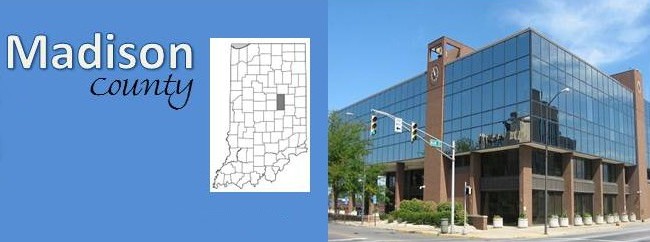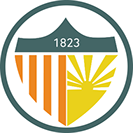Biographies and Obituaries
In loving memory
Alvin Don Foust
FAMILY:
Spouse: Barbara Wilson
Don and Barbara had one son, Thomas Wilson Faust b.1956
-------------------------------------
Obituary:
Biography:
Don Faust grew up on his parents farm in Madison county, Indiana, but was the first in a long line of farmers, to enter a different vocation. He spent his entire career in the broadcasting field, first as a radio and television announcer, and then as a station executive for more than thirty years. Along the way the spelling of the family name got changed from Foust to the ancestral Faust. He married Barbara Wilson in 1951 in their hometown of Dayton, Ohio. They became the parents of one child, Thomas Wilson Faust, who was born in 1956. Perhaps as a harbinger of the career to come, his first public speaking appearance occured two weeks before his second birthday, with a recitation at a church Mother's Day program. It was short, just, "Oh Mother dear, when you are near, all my troubles seem to disappear".
In Don's youth, he helped on the farm by tending livestock, cultivating the fields and doing assorted chores during the summer and after school. While still a young boy, as a learning experience in earning his own money, he was allowed to hatch eggs with a few setting hens, raise the chicks and realize the profits upon their sale. This led naturally to joining the 4-H Club, an organization of farm youth, when he was old enough to participate. His 4-H projects included Jersey calves, Shropshire sheep, and Buff Orpington chickens, all of which were groomed and shown in competition at county and state fairs, winning twenty blue ribbons. The most prized honor was a gold medal for the "Best Fitted" (groomed) Jersey at the Indiana State Fair. He also teamed with another 4-H member to win two state championships in demonstrating Applied Agricultural Procedures. The Great Depression that engulfed the country during his adolesent years, left a profound impression on him. Although his family fared better than many because they could raise their own food, it was a period of relentless privation. A particularly vivid memory was of seeing rescue workers removing the body of a man who had jumped only moments before from the observation deck atop the obelisk of the Soldiers and Sailors monument in downtown Indianapolis, another victim of the stock market crash.
Don was a member of the class of 1936 at Elwood high School, and was chosen as a commencement speaker. Following graduation, he went to Taylor University for one year, then to Purdue University. The study of agricultural economics at Purdue was not of overriding interest, but it did lead to something of greater appeal... student announcer at the university radio station, where he began with a program called, "Farm Facts for Farm Folks". That did it; broadcasting became his career objective. In 1939, he got a summer announcing job at an Indianapolis radio station, and never returned to college. The pay was $60 per month, but in that post-depression pre-inflation period, a full lunch cost only 35 cents, shoes could be had for $5, and a haircut was just a quarter (two bits).
The next eight years were spent at several stations in the typically nomadic radio business. After two years of somewhat aimless smaller market experience, he moved up to major stations in Washington D.C., Detroit, and Chicago. While in Detroit, in addition to staff announcing duties, he played the title role in the ABC network action drama, "The Green Hornet", the second of four who enacted the role in the 13 year life span of the program.
Don left Detroit in 1944 for Chicago to learn something of a new broadcasting medium... television. There were only seven stations in the country at the time, all mostly experimental and on the air for just a few hours a day. Three were in New York, and one each in Philadelphia, Chicago, Schenectady and Los Angeles. Equipment was hand made, programming was rudimentary at best, and enormous amounts of very hot lights were required to produce an acceptable picture with the early cameras. For example, it took eighty-four, 300 watt birdseye bulbs to light a small news desk. There were only 360 television receivers in the city of Chicago, all with tiny screens. Since the station was not commercially viable, as there were no advertisers at the time, personnel consisted of volunteers, except for a core technical crew. While earning a living as an announcer at a large radio station and part time work with a major advertising agency, Don became one of those pioneering volunteers as an unpaid TV performer and director. The days were long: the radio station from 5am to noon, the agency from 1 to 3pm, and the TV station from 3 to 10 or 11pm. For almost three years, sleep was almost an afterthought, but the experience gained would prove useful in future years. In 1947, with new stations beginning to come on air, Don and two others started a television production company to serve advertisers who were taking an interest in developing ways to utilize the new medium. The company enjoyed intial success, creating commercials for Shell Oil, Ford, Gilette, Kool cigarettes, Elgin Watch, and several brewers. But it was short-lived. The Federal Communications Commission (FCC), ordered a freeze on licensing new stations while they deliberated the allocation of new channels; an action that stopped the fledgling industry in it's tracks. The freeze lasted for three years, while the production company held on. It finally succumbed for the lack of new customers.
Broke and in debt, Don took a job in 1949 as Program manager at a previously licensed TV station that was under construction in Dayton, Ohio. It was there that he met his wife, who also worked at the station. Two years later he accepted a position as assistant General manager, at a station in Pittsburgh, PA. after two years there, he and the Sales manager found financial backers, applied for and received, one of the new Ultra High Frequency (UHF) channels that the FCC had made available. Unfortunately, the higher frequency signal did not adequately penetratethe hilly terrain of Pittsburgh. And the new station, despite excellant programming, could never develop an audience sufficient to sustain it. Another entrepreneurial disappointment.
Next, Don was hired to construct and operate a new TV station in Flint, Michigan, where he remained as Vice President and General manager for over 11 years. From a late start against entrenched competition, the station within a few years, achieved the second highest rating among all ABC network affiliates nationwide. Then it was sold and the new owner brought in his own manager, a man with whom he had been associated for some years. With a financial cushion from stock he owned in the selling company, Don took several months before deciding in 1966 to accept a job with the General Electric Broadcasting Company as Vice President and General Manager of the TV and radio stations it had just purchased in Nashville, Tennessee.
In succeeding years, he was transferred to the company's broadcast properties in Denver, Colorado and then to headquarters in Schedectady, New York. There, he was responsible for all of the GE stations, then the General Electric Cablevision Corporation and, finally, President of both the broadcasting and cablevision companies. As President, he was responsible for 11 TV and radio stations and 51 cable franchises across the country from Boston to San Francisco, a geographic spread that required flying more than 125,00 miles a year. After 15 years with GE, he retired to Nashville in 1981.
Throughout his career, Don Faust was very active in community organizations, serving as a director on dozens of boards. A few in which he was most active include: United Way in Flint, Nashville and Denver, YMCA in Flint, Nashville and Denver; Better Business Bureau in Nashville and Denver; Michigan Governor's Council on Traffic Safety; Colorado Governor's Task Force on Jobs for Veterans; Service Corps of Retired Executives in Nashville; and Senior Citizens Inc. and Senior Citizens Endowment in Nashville. There also were innumerable committees and service as a consultant to nonprofit organizations on long range strategic planning. He was a member of the Committee of Sponsors for Flint's College and Cultural Develpment, a group of community leaders who undertook the building of a cultural campus consisting of an art museum, theater, planetarium, carillon, auto museum, and two buildings to house a branch of the University of Michigan.
One of the more demanding community assignments was director of the Golden Milestone Celebration. It was a Flint civic endeavor honoring General Motors on the 50th anniversary of its founding in the city and remembering the auto pioneers who were part of it -- David Buick, Louis Chevrolet, William Durant, Walter Chrysler, Charles Nash and Ransom Olds. The year-long celebration sponsored 85 events, culminating in a live broadcast of NBC Television's "Wide, Wide, World" and a parade attended by over 200,000 people. The parade featured over 3500 participants and special floats carrying the stars of several popular network TV programs.
Professionally, he was a director of: The National Association of Broadcasters Radio Board; the ABC Television Network Board of Governors; the UHF TV Association; the Michigan Association ofBroadcasters; and a member of the Society of TV Pioneers. He was honored in 1953 as one of "Pittsburgh's Newsmakers of Tomorrow" in a Time Magazine/Pittsburgh Chamber of Commerce recognition and is a biographee in "Who's Who in America". Don has been a speaker for over 350 civic, professional and eleemosynary organizations from New York to Los Angeles. In academia, he lectured on broadcasting at Georgetown University, Michigan State, University of Michigan, Wayne State and the University of Colorado.
By the nature of the business, broadcasting brought him in contact with a innumerable number of noted people from all walks of life. Among them were six Presidents: Roosevelt, Truman, Eisenhower, Nixon, Johnson, and Reagan. The meeting with all except Roosevelt occurred before they were elected to the office. Barbara and Don were taken many places by his career, and experienced a jolt or two along the way. But she, and their son Tom when he joined the family, took it all in good cheer, made new friends at each location and created a home out of each new house.
Contributed by:
Written by Don Faust for "A Family History: The Ancestors of Thomas Wilson Faust", 1997.
[Submitted by J. P. Smith on 20 Oct 2001, who notes as follows, as to Alvin Don Foust,: "(Alvin) Don Faust was Glenn and Vivien's only son. He was a cousin that I looked up to and became my genealogy buddy.: We owe a great debt to Don for his exceptional research and "publishing" efforts in the quest for ancestral discovery. He was a model for those who try excell and make a contribution to Humanity."].

